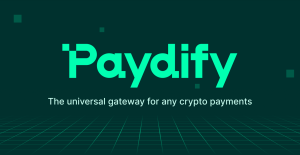Top esports platform Rival has officially announced a tie-in with Cardano to facilitate an NFT platform showcasing franchises within the Rival stable.
“Cardano will facilitate the sales of NFTs, the ability to create and distribute NFTs, the redemption of NFTs for physical goods and marketplace-based royalties within the Rival platform for its clients’ gaming communities, including brands, media properties, sports teams and leagues.”
The news first broke at the Cardano Summit, which also unveiled a multitude of partnerships to realize the goal of bringing about positive change on a global scale.
But, in terms of appealing to the mass market and those who aren’t necessarily already crypto savvy, Rival’s partnership stood out as the most intriguing.
Who is Rival?
Rival describes itself as a “white label” platform that enables companies to tap into gaming and esports to find new customers, drive engagement, build community loyalty, and generate additional revenue streams around their brand.
Its clients include many sports teams, such as the National Football League’s (NFL) Seattle Seahawks, National Basketball Association’s (NBA) Detroit Pistons, English Premier League (EPL) teams Aston Villa and Watford.
Rival CEO Matt Virtue said partnering with Cardano for NFTs will help his firm maximize and personalize the Rival experience for everyone involved. By utilizing Cardano’s technology, Virtue is now able to take its offering to the next level.
“Our partnership with Cardano marks Rival’s entry into blockchain and is a significant step in our evolution as an enterprise platform solution to unlock the unlimited potential in gaming and esports.”
Real-world utility on Cardano could be a while
The above is possible thanks to the Alonzo smart contract protocol, which rolled out just over two weeks ago, on September 12.
As much as that date was lauded as a new era for Cardano, it’s starting to dawn on many that real-world utility and a sufficiently “filled-out” ecosystem could take years to accomplish.
Data from adapools.org shows there are over 7,000 smart contracts deployed on the network. But, of those, only 27 are Plutus smart contract scripts. Meaning, the overwhelming majority are Mary-era scripts for native tokens/NFTs, rather than actual applications.
On the day Alonzo launched, IOHK’s Director of Marketing and Comms, Tim Harrison, felt it necessary to rein in expectations. He described the situation as a journey to a destination, adding that users shouldn’t expect too much in the initial stages.
“There are high expectations resting on this upgrade. Some unreasonably so. Cardano watchers may be expecting a sophisticated ecosystem of consumer-ready DApps available immediately after the upgrade. Expectations need to be managed here.”
All the same, with Rival on board, and more to follow, it won’t be long until the ecosystem is sufficiently filled out.
The post Community gaming platform Rival team up with Cardano to bring NFT marketplace appeared first on CryptoSlate.






















